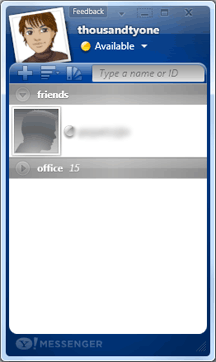For years, software shops of this world have worried about the 'optimum utilization' of their people and their people's time. The Pareto Principal, when related to resource utilization, says that twenty percent of the people usually do eighty percent of the work in most organizations. Turns out, this fact, worries most organization and makes them uncomfortable. This is often cited by many, as the primary reason why projects and organizations fail. After all when you have big things resting on a small group of people, you have a little bit of a problem.

Or do you?
At Multiplitaxion Inc, we discussed this problem in really long meetings where we spent countless hours trying to figure out how we can make the other eighty percent efficient. The discussions continued for days; but after the first couple of days there were a bunch of us who had realized 'something'. This is a post about that 'something'.
If you've ever discussed the Pareto Principal and have worried about its effect on your organization; knowing what we realized back then helps. That 'something' that we realized, consisted of some serious dark secrets; and I am going to let you on to those really dark little secrets right now.
Even though I personally dislike referring to people as 'resources', chances are, that knowing these secrets will change your perspective on 'optimizing the allocation of resources' and will help you with 'resource management'. I want you to get your pen and diary and take some serious notes. Ready?
Secret #1: Projects don't fail because twenty percent of the people end up doing eighty percent of the work; That is why your HR or Resource-Management-Group 'thinks' projects fail.
Secret #2: Your HR or Resource-Management-Group doesn't know a shit about software development.
Secret #3: Projects don't fail because twenty percent of the people do eighty percent of the work. Projects fail because organizations go out there and expect the other eighty percent who have never done any real work their entire life and are not even supposed to be doing anything real, to get their asses off the couch and start doing 'something' without clearly defining what that 'something' is.
Now if you followed along carefully and took notes when I asked you to, chances are you probably know more about 'optimum allocation of resources' than your HR, the Resource-Management-Group or whatever it is that you call that group of people in your organization, ever will.
Don't believe me? It's story time!
|
I take you back into the depths of time and bring back from the days that have rolled behind a rather interesting conversation between a young and budding manager, who we shall call Jack and a young and budding developer who we shall call John. It's been a long time since I heard this discussion and I may not be quoting the guys exactly, but I do try to keep the heart and the soul of the conversation as close to reality as possible. Jack: The HR called. I think they're going to allocate Fred to our project. He's free, wants some work and they think he can help you guys with business analysis and a few new ideas. And that was that. The project lasted for over a year and during the course of that project we never heard of, saw or worked with Fred. We saw him in the final project end party; after the project had ended; successfully. He was there to congratulate us. |
What this project manager had done was put the naughty monkey to sleep so that he wouldn't go mucking around the project and getting in the way of people who were getting the real work done.

The specifics of how he did it, remained a mystery however. The project rolled out five successive phases; during the course of these five phases more than one monkey joined the project under the name of 'optimum utilization of resources' and every single one of them was sedated; quickly and quietly. None of them did any major harm. Starting that day; if you were a manager working with anyone who had worked in that team, how many sleeping pills you had for the monkeys became a measure of how much the development team respected you.
Scott Berkun describes the importance of this ability to eliminate bull-shit and why kick-ass project managers should have this ability, while talking about 'The Lost Cult of Microsoft Program Managers':
|
When I was hired 1994 there was a cult around the role. Program Managers had a reputation for being people worthy of being afraid of for one reason: they knew how to get things done. If you got in their way, they would smile. And then eat you. They drove, led, ran, persuaded, hunted, fought and stuck their necks out for their teams with an intensity most people couldn’t match. The sort of people who eliminated all bullshit within a 10 foot radius of their presence. How to be this way, and do it without being an asshole, was one of the things I tried to capture in my book, Making things happen. All teams need at least one leader who has this kind of passion and talent regardless of where you work or what you’re working on. |
Put simply, every project requires at-least one, what we shall call, a 'bullshit buster'.
Now, this might sound simple; but like all simple things, it is not something you can take lightly or casually. This is serious stuff. Bottom line; your project is only going to be as good as the quality of your team, their chemistry and the quality of your 'bullshit buster'. You can have a kick-ass team building a mind blowing product, but if you've left a few monkeys awake, chances are, that your project will suffer and while using your product, your customers will smell the shit those monkeys have leave behind.
If you've used windows live writer to write a blog post you probably love the product. However, the very fact that you had to go through the pathetic installation process while getting the windows live writer installed on your box makes me feel sorry for you. The product installer yells out loud that the windows live writer team probably missed out on doing a good job at bullshit busting. Rory in his post on the live writer installation process explains his frustration with the product and the probable cause of why an amazing product like the windows live writer can end up having a really shitty installer:
|
I love Windows Live Writer - the app itself. It's one of the few reasons I run Windows XP inside Parallels on my Mac. It's one of the apps I didn't want to leave behind when making the switch. It's simple, easy to use, and, despite being a Microsoft app, doesn't get in the way of itself. The interface is a little cluttered for what it is, but a couple settings can clear that right up. What I can't stand is how difficult it is to get the stupid thing. I headed over to the Windows Live Writer Blog and started the download there. It was about a 2 MB file. It was a nice change from the usual bloated downloads you get from Microsoft. Of course, it turns out that it's just an installer, and not one specific to Windows Live Writer. As many of you have probably learned, it's a full on assault on your sanity. Instead of simply installing the one app I want, I have to negotiate with the god damned thing just to get the "real" installation started. It reminded me of the old Real Player days when, before finally agreeing to install the app, the installer wanted your social security number, a list of any STDs you have or have had, your checking account number along with the ABA, an agreement to subscribe to eighty magazines you'd never read, and an offer to be put in a drawing to win a trip for two to Cancun if you mail them your passport. When Real Player crossed the line from being self-promotional to being a scourge on your computing life, people stopped using it. Not everybody - there are still a few victims out there who don't know any better - but it's widely hated in geek circles where tolerance for bullshit is minimal. Given the advantage of hindsight, it's mind-boggling that the Windows Live Writer team has gone down the same path. And, given my experience on the Inside, I'm sure that the Windows Live Writer team has little to do with the stupidity of the install experience, but as an end-user now, it's not my job to figure it out or to care. They're being represented by this crap, and their product is going to take a hit because of it. It's unfortunate, as it's likely some dipshit-originated system imposed on the Live Writer team by some grand Initiative in the Microsoft tradition. Someone does something good, and other people, eager for success and recognition internally, hijack and then ruin the product. This happened to me, albeit in a different way (and not when I was with Channel 9). I was in shock at how easy it was for someone else to swoop in and destroy something I was just getting right. The Windows Live Writer team probably - hopefully - feels the same way about what happened to their product. That's Microsoft for you. |
The web is littered with examples of amazing software that were either sabotaged, destroyed or sometimes even killed because the bullshit-busters didn't have enough sleeping pills. Then there are a few awesome products out there that are just being closed-down under the name of 'best utilization of resources'. You don't really have to be an employee of these companies or a rocket scientist to guess what might be going on in some of these product meetings and who is making the final decisions about the products future and health. Yahoo Messenger for Vista is a classic example.

The story for this really cute and sexy little piece of software was simple. It was a Yahoo initiative and one of the most-used applications built on top of Windows Presentation Foundation that wasn't built by Microsoft. What set it apart was that it built ground up for Windows Vista. Yahoo built it, announced it, advertised it and promoted it big time for vista users. Most vista users loved it; not just because of its sex appeal but some decently interesting features like tabbed chatting, awesome skinning features and the fact that it kicked some serious ass.
Personally, I loved it too; but that's not important. What is in fact more important is that with the release of this little piece of software it finally sounded like the whole stupid anti-windows zealotry would end and differences between software giants would reduce. It looked like companies were bending over their back to use the best tools and give the best user interface and usability experience to their end users.
My dream of this beautiful software-development-world where organizations work on commonsense however, lasted till I ended up formatting my notebook a few weeks later and suddenly realized that Yahoo Messenger for Vista didn't exist. It was gone. Disappeared. Zip. It was almost as if the thing had never existed. Yahoo had not just stopped development on this version of the messenger but they had removed the existing version from their servers so that no future downloads were possible. The official announcement on the Yahoo Messenger Blog clearly indicated lack of bullshit busters at Yahoo:
|
As of today, Yahoo! Messenger for Vista will no longer be available for download from the Yahoo! Messenger website. We have discontinued stand-alone releases of the Yahoo! Messenger for Vista application in order to focus on delivering one Windows experience that is optimized for all Windows users. This decision will help us increase efficiencies on our team and deliver one consistent, full-featured product for all of our Windows users. Our application was based on the Windows Presentation Foundation (WPF) platform which we will continue to experiment with and invest in. The knowledge we gathered from developing Yahoo! Messenger for Vista will also help us improve future versions of our Windows software. We realize many of you have been with us from the first launch of Yahoo! Messenger for Vista and we want to thank you for trying it and providing great feedback with each new release. |
A few speculations on the web, like this one from Jonathan Kay for instance, have it that it was because of the 'cost cutting measures' at Yahoo that Yahoo Messenger for Vista was murdered.
Anyone with a little bit of an imagination might be able to guess what that meeting directed towards increasing the 'efficiencies' of the team, would have been like and how it must felt for the core team that was working on this version of the Yahoo messenger, was starting to kick some serious ass and taste success.
Personally, as far as I am concerned as an end user, I think the Yahoo-Messenger-For-Vista team were doing a mind blowing job when they were 'not efficient' and Yahoo shouldn't have worried a lot about increasing the 'efficiencies' on their team. After all, they were shipping and they were kicking some serious ass. They were doing just fine.
On a serious note, If nothing else, I use the live writer installer, real player and yahoo messenger for vista as examples of what happens people who have nothing to do with the core product teams get in really big rooms, give their ideas and then insist that these ideas be implemented.
Shit happens; even in some of the best organizations of the software development world; and if you don't have enough bullshit busters in your team your product could be next.
The Pareto Principal usually takes care of itself if you can simply retain your best and hire people who are 'done and get things smart'. You don't need to organize big meetings to discuss how to utilize your people better. Twenty percent of your people doing eighty percent of your work won't kill your organization or your product. It is expecting the other eighty percent who have never done any real work their entire life and are not supposed to be doing anything real, to get their asses off the couch and start doing 'something' without clearly defining what that 'something' is, will.
Having a kick-ass team of developers who are tightly knit, flock well, support their code and are continuously shipping; isn't enough. Every team needs at-least one bullshit buster who carries a lot of sleeping pills; even when you're a Microsoft, a Real-Networks, or a Yahoo.
If you happen to be at your workplace, look around you; if not think of everyone who you work with. How many monkeys can you see or think of? How many bullshit busters can you see or think of? How many sleep pills do you think these bullshit busters carry with them? Are they enough to sedate all the monkeys and send them to sleep?
If you answered yes to the last question, you chances are you're going to have a great product, a work life full of fun and a decent number of innovations happening. I wish you good luck.
If you answered no to the last question however, you're going to have to attend a few really long meetings, do a lot of 'resource management' and deal with a lot of new ideas as people who have a lot of time and nothing else to do muck around with your project; we wish you and your team good luck anyways; you guys just might need all the luck you can get; every single bit of it.
Comments are closed.